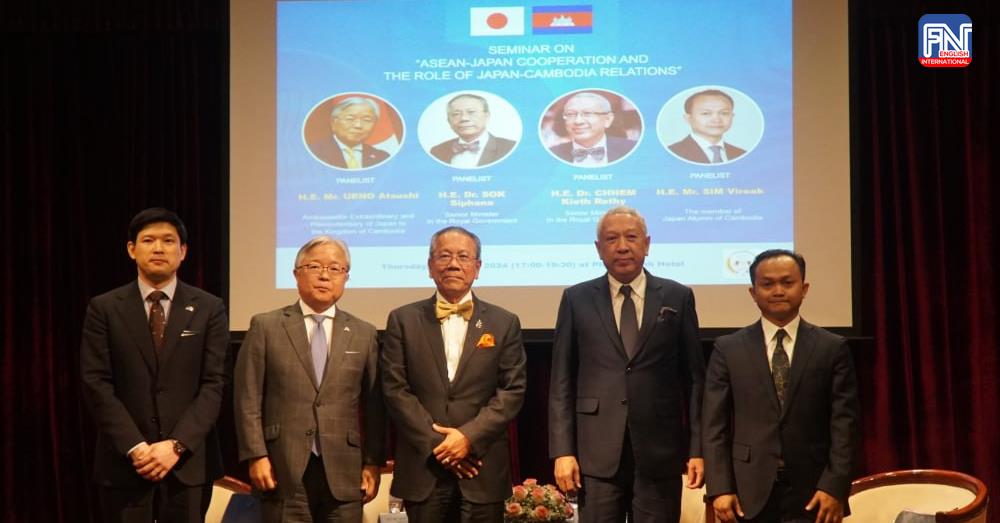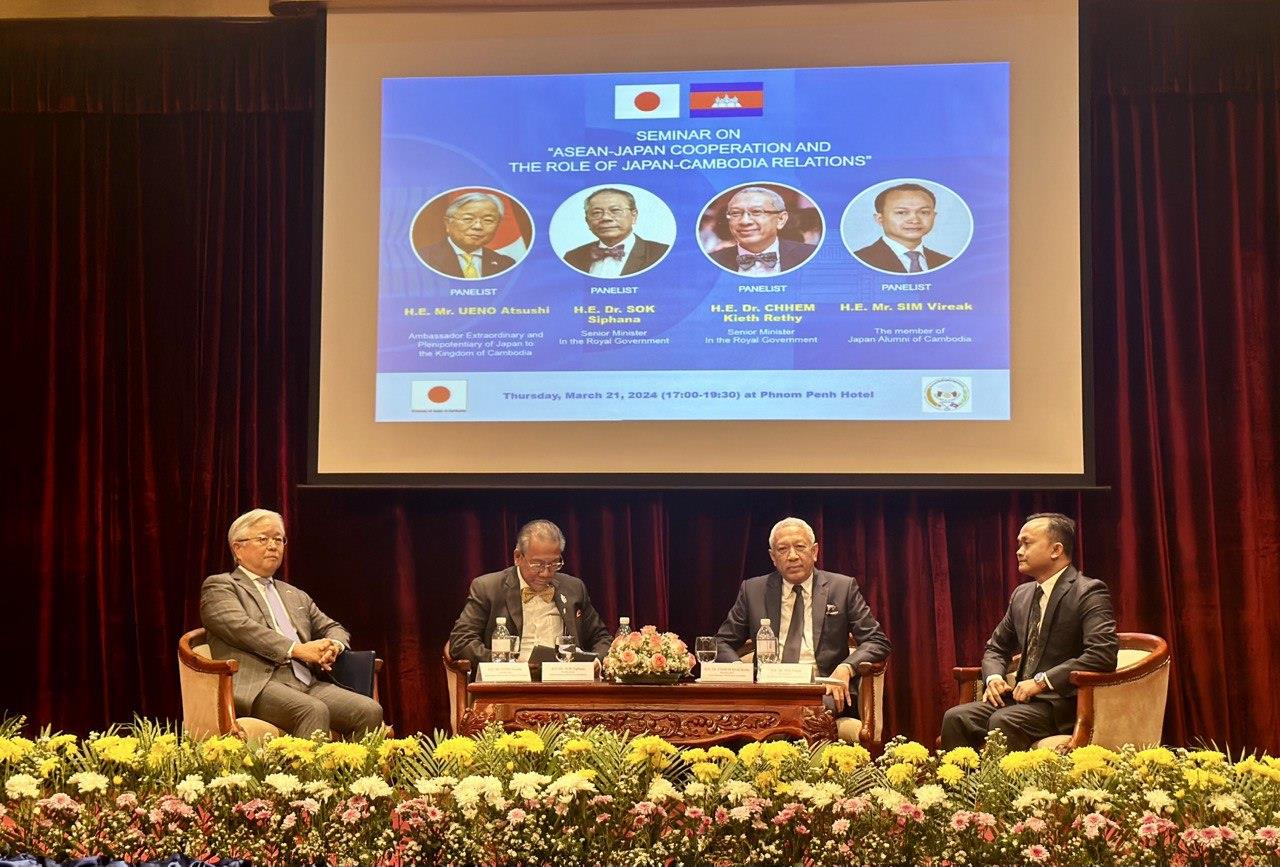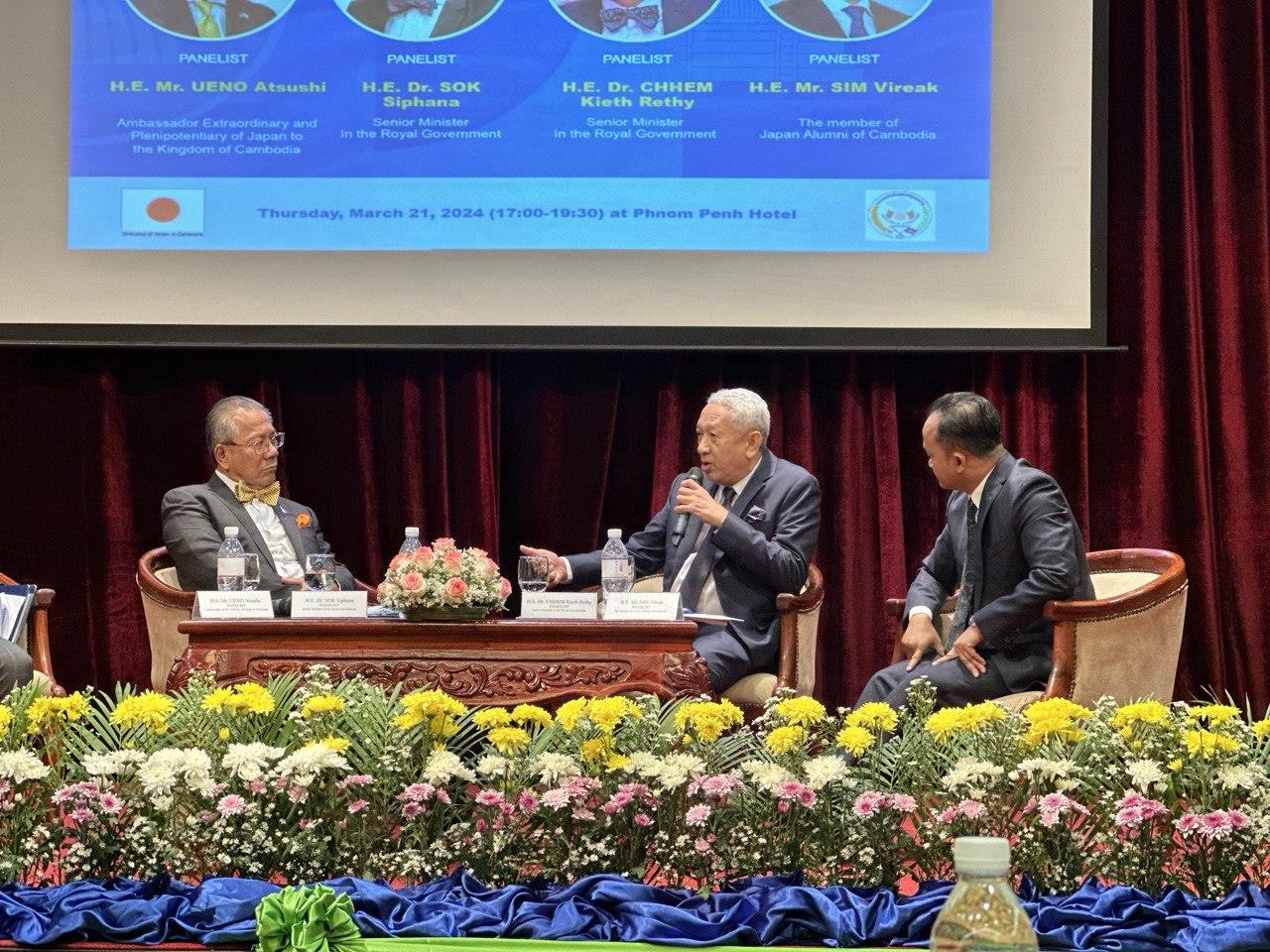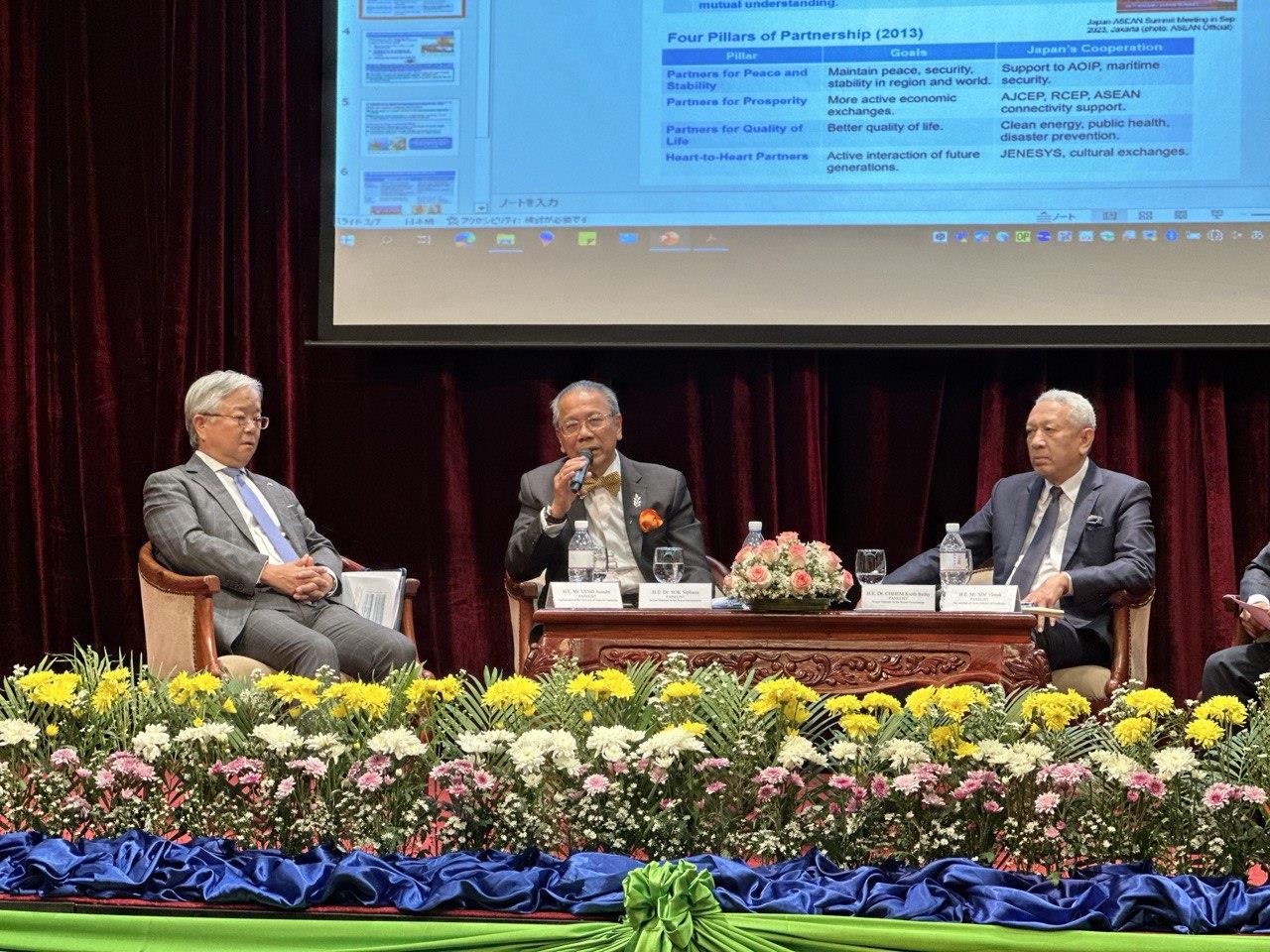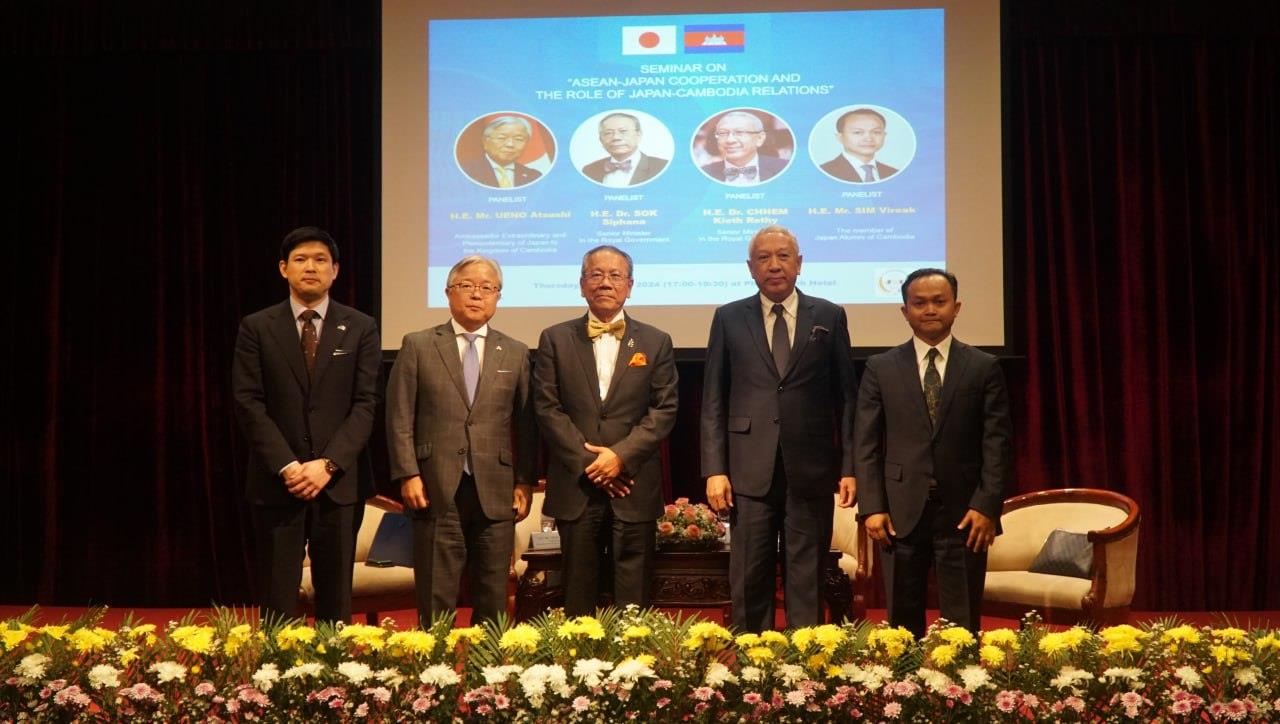Phnom Penh (FN), Mar. 22 - On March 21, the Embassy of Japan in Cambodia successfully held a Seminar on ASEAN-Japan Cooperation and the Role of Japan-Cambodia Relations.
With nearly 100 people attending the event, the seminar aimed at deepening understanding of Japanese policy towards ASEAN and ASEAN countries including Cambodia, and to exchange views on future direction of the relationship between Japan and Cambodia.
Japanese Ambassador to Cambodia Ueno Atsushi said “Japan's relations to ASEAN dated back to the year 1973. Since 1973, our relations with ASEAN have been developing in various ways. [...] The spirit of Fukuda doctrine still remains in our policies as a core spirit. During the Abe cabinet in 2013, then-Prime Minister Shinzo Abe announced five principles of Japan-ASEAN diplomacy and promoted cooperation based on the four pillars.”
According to the ambassador, the four pillars include partners for peace and stability, partners for prosperity, partners for quality of life, and heart-to-heart partners.
Ambassador Ueno affirmed, “We always respect ASEAN centrality and ASEAN unity. We never intend to interfere with the value and the basic principle of ASEAN.”
Regarding Cambodia-Japan relations, Ambassador Ueno shared a personal observation that ASEAN countries, including Cambodia have been changing very rapidly both economically and socially, and here in Cambodia, digitalization is proceeding quickly and he believed that the level of digitalisation in Cambodia has already exceeded that of Japan. For instance, ABA QR and Grab.
“Some Japanese companies have shown interest in joining the renewable energy projects here in Cambodia. For example, a big Japanese company named Minebea Mitsumi decided to build its second factory in Pursat Province in order to make use of the solar power generation. According to Minebea Mitsumi, Pursat is a very good place for solar power generation,” the ambassador added.
Ambassador Ueno also reiterated Japan’s continued provision of the official development assistance (ODA) to Cambodia for various fields. In particular, digitalization and enhancement of connectivity as new priorities. Japan is also ready to provide assistance in areas, such as the water supply, environment, and some priority areas which were designated in the Pentagonal development strategy, including human resources development and government reforms.
One of the panellists, Cambodian Senior Minister Sok Siphana expressed optimism about Cambodia’s future trade volume with Japan, which he believed to significantly increase in the next five years based on the current regional trend and the initiative to establish Cambodia-Japan Special Economic Zone.
Chhem Kieth Rethy, also Cambodian Senior Minister, shared his experiences on his bonding with the Japanese people during his time as a Cambodian scientist in the Fukushima Inspection mission, and his passion for Japanese arts and culture. At the same time, he also proposed a Japanese Film Festival in Cambodia and recommended more exchanges of students and government officials to enhance and promote the interaction between the Japanese and Cambodian people, especially among youths.
With heart-to-heart collaboration are now bearing fruit, Ambassador Ueno and Cambodian senior ministers pledged to further promote people-to-people exchanges between the two countries, which is in line with Cambodian Prime Minister Hun Manet’s support for Japan’s launch of a 40 billion JPY for people-to-people exchanges and cultural-educational cooperation.
Beginning with positive relations and subsequently elevated to a comprehensive strategic partnership, Japan has supported Cambodia in maintaining peace and aiding recovery after the conclusion of the civil war. This support extends to programs promoting the development of democracy and socio-economic progress.
Notably, infrastructure projects, such as the repair of the Chroy Changvar bridge damaged during the civil war, construction of major bridges, roads, health facilities, schools, and irrigation systems, have been undertaken to enhance the well-being of Cambodians.
Regarding economic cooperation, the trade volume between Cambodia and Japan, which was 1.6 billion yen in 1981, has surged to more than 200 times by 2022. Japanese companies have experienced substantial growth in Cambodia, with several large Japanese firms investing significantly in the country.
Recent developments include the opening of numerous large Japanese companies in Cambodia, and in 2023, several substantial investment projects were initiated, including the launch of Aeon Mall 3 and initiatives for mutual tourism exchanges and sending students to study in Japan.
=FRESH NEWS
